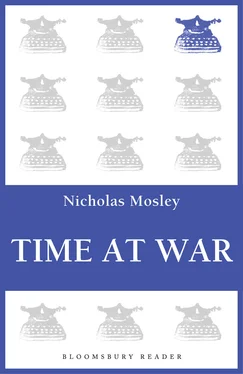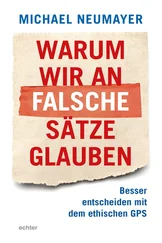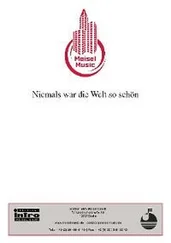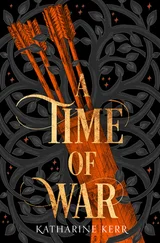A week or two later I was writing to my father –
The routine is as intense as expected; non-stop from 6.30 to 6 and very often extra fatigue after that. But there is barely time to stay depressed, and the evenings are made happy by the mere fact that we can get outside the barrack gates. We are all mixed up with the conscripts — men of 35–40 — better than younger ones who might be more aggressively hostile to us future (we hope) officers. But these are bad enough. They fuss around swearing ( always the same drab monosyllable) spitting and interfering with everyone with hoarse belches of amusement. The sergeants are wonderful men, who give us hell on the parade ground, calling us such names as make us laugh and wonder at their power to conceive such obscenities. Off duty they do quite a lot to help us.
My sister and I had visited my father two or three times when he had been in Brixton Prison. We had been under supervision in an austere visiting room and had been amazed at our father’s cheerfulness. He said he was making profitable use of his time by being taught German by some of the internees; and he then hoped to embark on a course of reading European literature and philosophy. It was as if, having made his public protests about the war, he was not outraged that he should be in prison.
At Winchester the ex-public schoolboys on the whole seemed better than others at having to shave and wash and wash up in cold water, for instance; the conscripts were better at the ritual of setting out in meticulous geometrical order their bedding and equipment ready for inspection every morning. What I remember now about the depot at Winchester is the strange mixture of bonhomie and misery — the former mostly to do with drinking beer in the evenings and making jokes; the latter often to do with my stammer. We potential officers would be taken out of our squad one by one on the parade ground and put in charge of the drill. It sometimes seemed that I, standing with my mouth open silently like an Aunt Sally at a fairground, might unwittingly become like the Emperor Christophe of Haiti who used for his amusement to march his crack troops over a cliff. Once, when my squad was proceeding at the fast trot that was the customary style of the Rifle Brigade straight towards the doorway that led from the parade ground to the NAAFI canteen, I thought there might occur some happy outcome to my predicament. But the sergeant-instructor beside me, sensing a plot, bellowed in time ‘About turn! Left turn! Right turn! Knees up! At the double!’ with appropriate expletives. The insults that the sergeants were accustomed to hurl at us were enjoyable, though they were usually gentle with me. I had a friend called Pollock who became something of the squad butt. When we were standing to attention the sergeant would stand very close to him and yell — ‘Pollock! Spell it with a P, do you? You sack of shit!’
From Winchester I was given leave to go up to London once a week to see a stammer specialist. This was Dr Lionel Logue, who had been treating the King. I had been going to him during my last year at Eton, and I did not think he was doing me much good. I desperately wanted to get rid of my stammer, but he tried to get me speaking in lilting rhythmical cadences like a ham actor or a politician or a clergyman. While I was with him I could do this quite well; then when I got away it seemed I would rather stammer than sound like an actor or a politician or a clergyman. No one made much sense of my stammer until I was sent by the army after the war to another quite different type of specialist. He said — But has it ever struck you that you may not really want to get rid of your stammer? I was for a moment outraged: me not want to get rid of the stammer that caused me such misery? He explained how a stammer might be a form of self-protection. But the understanding of this belongs to a later part of the story.
Some of our squad had been at school at Winchester just down the hill, and they would go down on Saturdays to visit the boys they had perhaps been in love with at school. Then on Sundays we would line up for Church Parade and march to the stunningly beautiful Winchester Cathedral where one of the popular hymns was to the tune of the German national anthem, and we would try to remember the German words. Then on our way back through the streets, proudly led by the regimental band playing the Rifle Brigade march, we would sing its time-honoured words–
Oh the Rifle Brigade has gone away
And they’ve left all the girls in the family way
The KRRs who are coming behind
Will have seven-and-six a week to find
— seven shillings and sixpence being the cost, in those days, of the upkeep of a child.
No one at the depot seemed much interested in my father; and I was not thinking much about the sense or ethics of the war. It seemed we were all involved in some gigantic juggernaut of fate or the grim workings of evolution. Our task was just to keep going, with as much good humour as possible. By this time both Russia and America were in the war against Hitler, so there was the sense that in the end, so long as one stayed alive, things would turn out all right.
From Winchester our group of mainly ex-public schoolboys went briefly to Tidworth on Salisbury Plain, where we did training with transport. The speciality of the Rifle Brigade and the King’s Royal Rifle Corps was to form motorised battalions ready for quick deployment in war. Then from Tidworth we moved to an Officer Cadet Training Unit in York. Here we were treated more specifically as potential officers: we did tactical training at platoon and company level. But we still had to go regularly on long half-jogging marches covering ten miles in two hours, carrying heavy packs and weapons; we were tested for the dexterity with which we could take various weapons to bits and put them together again. We learned to drive trucks; we were taking on cross-country motorbike rides by a former hill-climbing champion, during which he led us up almost vertical slopes and we laughed when our machines tipped over backwards and chased us down the hill. We were lectured on current affairs and regimental history. We also felt free to indulge in some of the more traditional pastimes of officers.
I had asked my father if I could borrow his shotgun. I wrote to him from Fulford Barracks, York –
Many happy returns of the day.
Your lawyer has managed to rescue your guns from the Home Office, and they are now safely up here with me. The trouble is cartridges, which are practically unobtainable, but perhaps some of my sporting friends in the OCTU will be able to wheedle me some from their family dealers. I will be able to get in a fairly regular shoot on Saturday afternoons, and we are now being encouraged to take a gun when we go on manoeuvres on the moors. The authorities are very reasonable about all this; and if one gives a pheasant or two to the officers’ mess they will let you take a gun almost anywhere.
We have now finished our mechanic’s course, from which I passed as a 1st class driver-mechanic, which was really very bogus, and was granted only through systematic flattering of the instructor. Also our wireless course, which was not so successful, as I was rather overconfident and idle, spending most of the time listening to the BBC and trying to wreck the wireless schemes by sending false messages. Which displeased people, and I fear I may have got a low mark.
But we are embarking upon the most important part of our training now — endless tactics and toughening courses, horrible 5-day manoeuvres in Northumberland, sleeping open-air with one blanket and being harassed by live ammunition and artillery barrages. Then on December 18 we pass out complete with natty suiting and prominent chest and are allowed to show off to our families for a week or so. I will come and see you then just before Christmas.
Читать дальше












